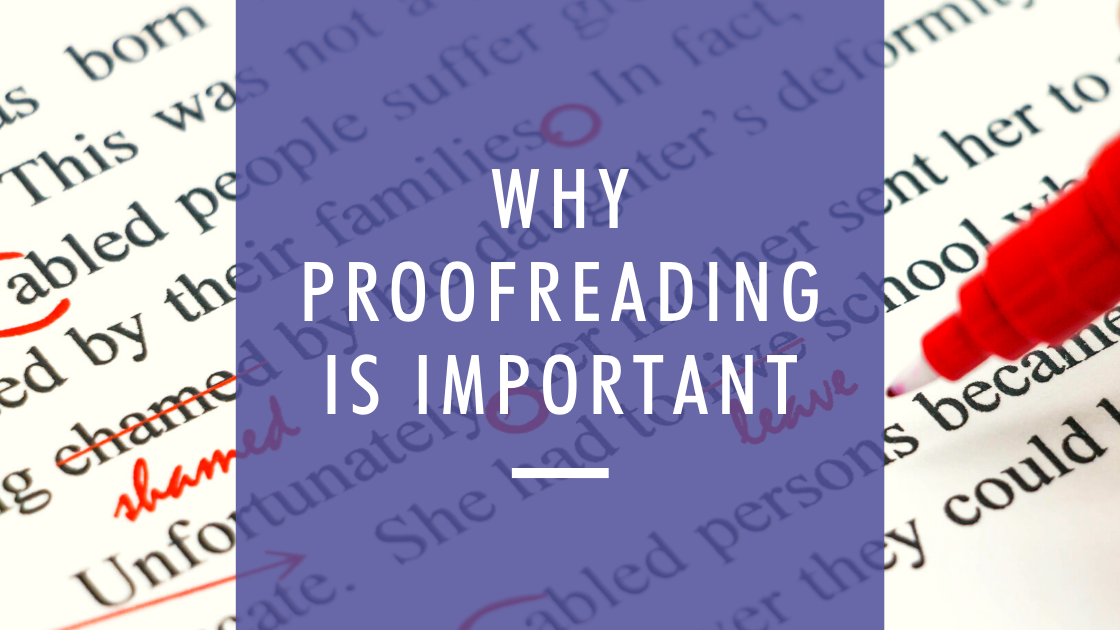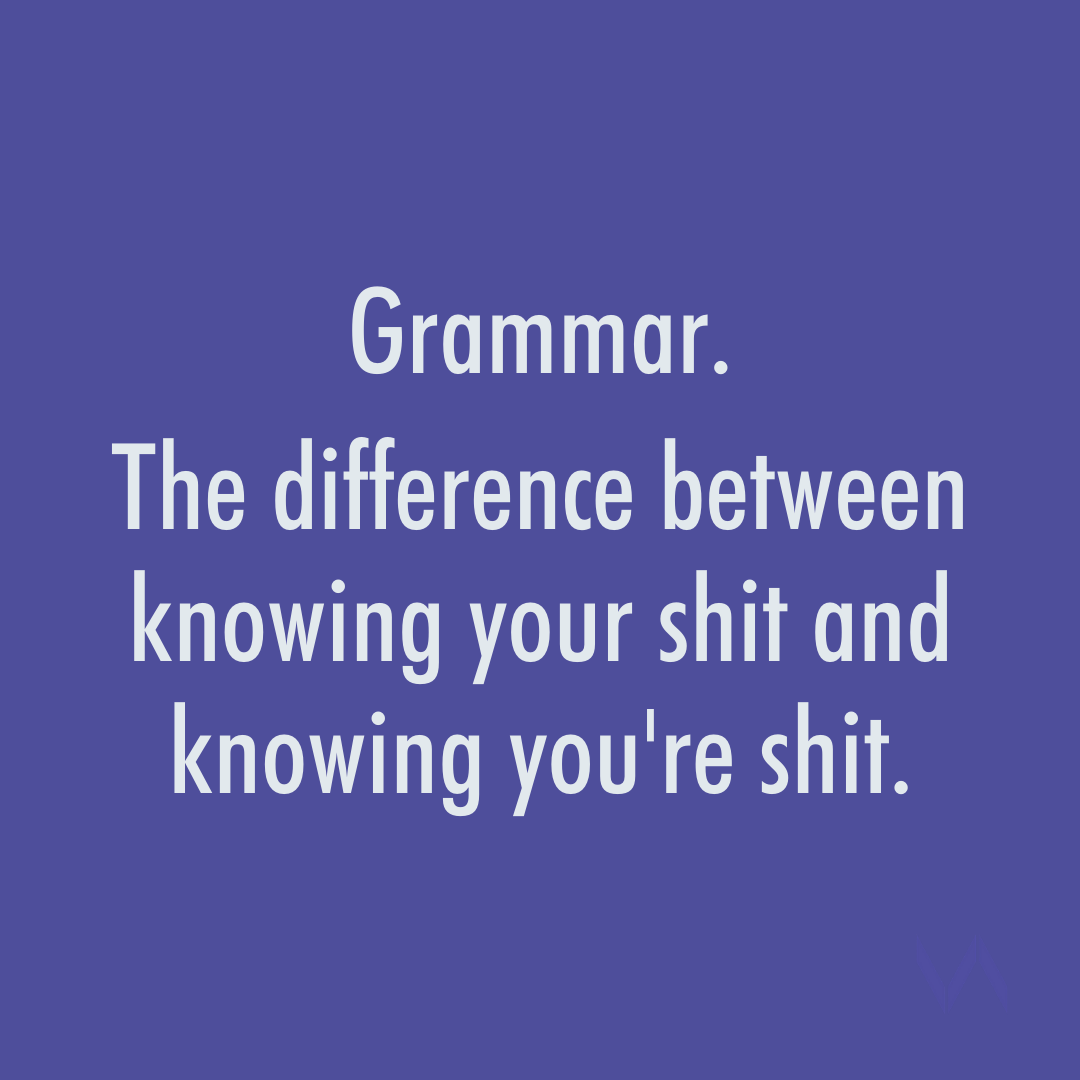Now, I understand that language evolves and the world won’t end if we all end up saying ‘could of’ instead of ‘could have’ in 100 years’ time. Misspelling potatoes isn’t going to make a difference to how many vegetables that greengrocer sells.
But if you’re a small business owner producing documents for your clients and social media channels, how important is it that you proofread and check for good grammar?
Answer: it’s hugely important and here’s why.
It’s not just about grammar. Proofreading is the process of checking written output for errors in order to improve readability.
Proofreaders check for:
- grammar, punctuation, spelling (which includes Random Capitals on words that Should be lowercase)
- sentence structure
- spacing issues
- alignment, e.g. if all your paragraphs and bullet points are lined up neatly
- correct word usage
Why do I need to proofread?
To those among us who aren’t detail people this level of checking can appear pernickety and unnecessary. They just want to get their message across so why does it matter whether they use they’re, there or their?
It matters.
Take this meme as an example.
Even if it’s still clear what you mean, frequent or obvious errors in a piece of writing can distract from your content, which dilutes your message. If your reader is noticing incorrect spelling or grammar every other sentence, then they’re not concentrating on your content.
Poor sentence structure can alter the flow of a document, making it clunky and difficult to read. Incorrect or erratic spacing and inconsistent paragraph alignment have the same effect. It all serves to take the reader out of the moment and to take their attention away from the core message of what they’re reading.
And what if you mistype your call to action? Many social media posts include links – what if you put a link to your website in a post, but you’ve made a typo and it doesn’t actually link to your website? At best it’s going nowhere, at worst you could be accidentally sending potential clients to a competitor.
It all affects your readers’ perception of your competence and credibility. For example, if you work in a sector that requires excellent attention to detail and you produce a post or document that is strewn with typos or grammatical errors, then you’re casting doubt on your ability to show attention to detail in other areas of your work.
Doesn’t spellcheck do this for me?
Spellcheck is a great function but isn’t without its faults. Microsoft Word frequently suggests that I’ve used the wrong it’s or its, when in fact my usage is correct. It is often set up with US spelling as the default, e.g. highlighting ‘colour’ but leaving ‘color’ as correct (although this is less common than it used be).
Spellcheck also won’t pick up any errors in names or links so these have to be checked separately anyway.
And finally it can’t make a judgement on readability, flow or word choice. You need a human brain to assess these attributes.
Won’t proofreading cramp my style?
A common misconception is that proofreading a document will make it too formal and take away the writer’s voice and unique style. The aim of proofreading is to remove errors and improve readability. The only reason a proofreader would suggest using more formal language would be where the piece of writing is formal and the language is appropriate. For example, I started an earlier paragraph with ‘And’. That's grammatically incorrect, but it suits my style so I’ve left it in.
Proofreading also enables you to weed out any awkward sentences or phrases that may have sounded great in your head but aren’t so good once they’re down on paper. Something that initially made sense might be improved later with a few tweaks, without losing the original sense or the author’s voice.
I hope this has explained why proofreading is so important. If you’re not a detail person, struggle with grammar or spelling, or can’t think of anything worse than re-reading what you’ve already written then why not hire a VA to do your proofreading for you? Get in touch to find out how the HLVA team can deploy their eye for detail and enhance your business communications.



 RSS Feed
RSS Feed



